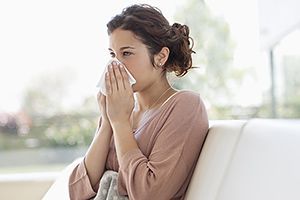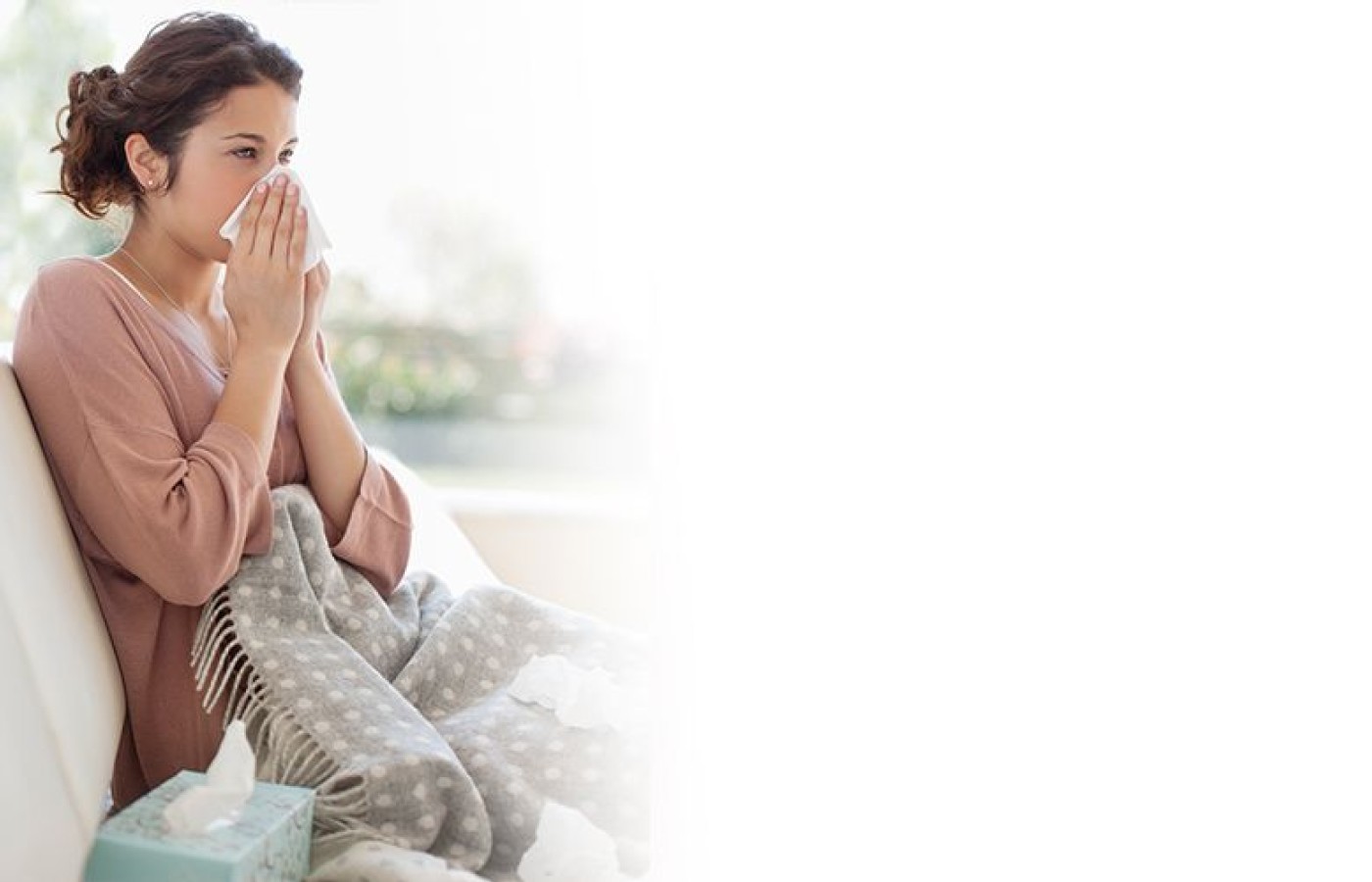The most important relationship I seek to nurture in the treatment room is the one a patient has with their own body. We live in a culture that teaches us to override pain, defer to outside authority, and push through discomfort. Patients often arrive hoping I can “fix” them, but the truth is, we can’t do the work for them. We can offer guidance, insight and support, but healing requires their full participation.
Seasonal Allergies: Calming Down the Overreactive Immune System With TCM
An allergy is an overreaction to a particular foreign antigen, also called an allergen. Allergens including plant pollen, food, dust, dandruff, and some mold spores are non-pathogenic. Although such allergens are not themselves harmful, the immune system's overreaction to the allergen can result in tissue damage due to histamine, cytokines and other chemicals produced by the body.
The Allergic Response
Seasonal allergies occur upon exposure to an allergen in atopic individuals. Typically, these individuals experience type I hypersensitivities. In Type I hypersensitivity, also called immediate hypersensitivity, the reaction occurs rapidly, typically within minutes if the host has been sensitized. We have seen this often in seasonal allergies.
A typical allergic reaction is initiated by the entry of an allergen which activates T cells (more specifically, the Th2 cell) if the antigen is not "learned" by the T cell as tolerable. Such an abnormal activation of the Th2 cell is caused by either genetics or the Th2 cell's poor recognition function due to chronic antigen overload as well as Th2 deficiency and fatigue. The activated Th2 cells then activate B cells to produce allergen-specific IgE antibodies against the allergen. The IgE antibodies then bind to mast cells and make them sensitized.

When the mast cell is exposed to the allergen the next time, the allergen binds to the IgE antibody on the mast cells surface and then triggers mast cell degranulation. The degranulation process involves the release of several cytotoxic signaling biochemicals including histamine, leukotrienes, prostaglandins, heparin, protease, and pro-inflammatory cytokines.
These chemicals increase vascular permeability, smooth muscle contraction, secretion of mucus, and thinning of the blood, causing inflammation and tissue damage. Patients may have symptoms of hives, watery eyes and runny nose (hay fever), bleeding or wheezing and difficulty breathing in more serious cases.
TCM Herbal Protocol
In TCM, the immune system's overreaction to an antigen and the resulting allergy symptoms are referred to as hot blood. Its poor recognition function due to deficiency and fatigue from chronic antigen overload is referred to as a yin deficiency and wind. Herbs that cool the hot blood have been shown to be extremely effective against the pathogenesis of seasonal allergies. These herbs can calm down the overreactive immune system and eliminate the allergy symptoms.
Bambusae Caulis in Taeniam (Bamboo Shavings / Zhuru) has been shown to reduce airway inflammation in allergic airway disease by decreasing levels of eosinophils and IL-4 production as well as Th2 response.1-2 Forsythia Fructus (Weeping Forsythia Capsule / Lingqiao), another herb commonly used in TCM for inflammatory conditions, has been shown to down-modulate mast cell activation by inhibiting histamine release and downregulating TNF-α.3
Other herbs that can also cool down the blood includeFlos Lonicerae (Honeysuckle Flower / Jinyinhua, Herba Schizonepetae / Jingjie), Rhizoma Coptidis (Golden Thread / Huanglian). Use of yin-nurturing herbs such as Radix Ophiopogonis (Dwarf Lilyturf Tuber / Maidong) and wind-removing herbs such as Radix saposhinkoviae (Divaricate Saposhnikovia Root / Fangfeng) nurture the immune system and addresses the issue of immune deficiency and fatigue and the resulting poor recognition function. The combined use of these herbs helps the body be able to bring its overly sensitized immune system back to the baseline leading to a decreased reaction when re-exposed to the allergen.
A Sample Case Study
Successful Resolution of Severe Allergy & Bloody Nose — Jacklin Arastouzadeh, LAc, Beverly Hills, Calif.
A male patient, age 16, had been diagnosed with complex and severe allergy symptoms worsening around winter and springtime. The patient had received allergy shots, but still suffered from painful sneezing and nose bleeds. Particularly in the morning, he incurred heavy bleeding of his nose, which would even force him to arrive late at school (one box of tissues per morning). At night time, he had an itchy throat and dry eyes.
His parents had executed a comprehensive cleaning of his room at an attempt to remove any allergens; and the family dog was no longer allowed in the room. Nonetheless, the patient still had to be on Tylenol, Zyrtec and Claritin.
After the TCM examination, a combined program consisting of 24 sessions was recommended. It included acupuncture and an herbal formula that cools down the blood and clears wind, containing Bambusae Caulis in Taeniam, Forsythia Fructus, Dwarf Lilyturf Tuber, Saposhnikovia Root, and five other Chinese herbs. The herbal formula was utilized for a total of 3.5 months. The acupuncture treatment was done twice a week for the first 10 sessions, followed by once a week afterward.
The results were remarkable. All of the patient's allergy symptoms were completely resolved and results were sustained even into the next allergy season.
References
- Lim D, et al. Original research: extract of Bambusae Caulis in Taeniam inhibits cigarette smoke-induced pulmonary and intestinal inflammation. Exp Biol Med, 2017 Jan;242(1):102–112.
- Ra J, et al. Bambusae Caulis in Taeniam extract reduces ovalbumin-induced airway inflammation and T helper 2 responses in mice. J Ethnopharmacol, 2010;128(1):241-247.
- Kim M, et al. Forsythia fructus inhibits the mast-cell-mediated allergic inflammatory reactions. Inflammation, 2003;27:129-133.



